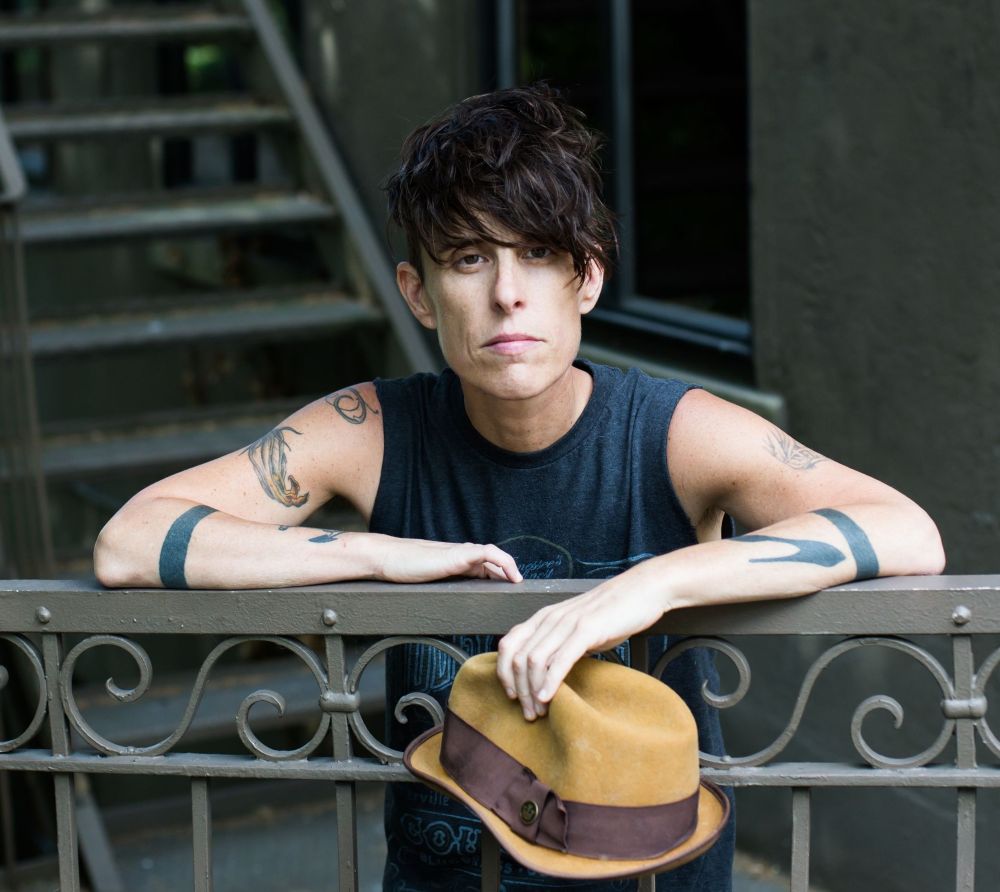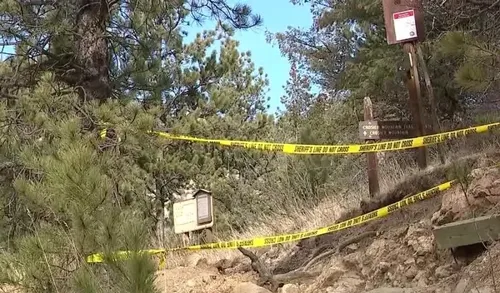Poet Andrea Gibson Remembered for Illuminating Life, Love, and Mortality Through Powerful Verse
Andrea Gibson, the acclaimed performance poet known for their fearless exploration of gender identity, terminal illness, and radical love, has passed away at the age of 49. Gibson died on Monday in their Boulder, Colorado home, surrounded by their wife, Megan Falley, close friends, family, and the three dogs they adored.
The news was shared in a heartfelt post on social media by Falley, who described Gibson’s final moments as deeply communal and loving. The announcement noted that Gibson passed "surrounded by their wife, Meg, four ex-girlfriends, their mother and father, dozens of friends, and their three beloved dogs.”
Gibson’s death comes shortly before the premiere of the documentary “Come See Me in the Good Light,” a film chronicling their relationship with Falley and their battle with ovarian cancer. Directed by Ryan White, the film won the Festival Favorite Award at this year’s Sundance Film Festival and is set to air later this year on Apple TV+. It features an original song co-written by Gibson alongside Brandi Carlile and Sara Bareilles.
During a Sundance screening in January, Gibson, visibly moved, shared that they hadn’t expected to live long enough to see the film's release. The screening left many in the audience in tears, reflecting Gibson’s enduring power to move hearts with truth.
Tributes began pouring in Monday from poets, fans, and members of the LGBTQ+ community, many of whom credit Gibson’s poetry with helping them embrace their identities and navigate life’s most difficult transitions. Gibson’s work resonated particularly with those facing terminal illnesses, offering solace through verses that redefined the meaning of death and presence.
In one of their final poems, “Love Letter from the Afterlife,” Gibson wrote, “Dying is the opposite of leaving. When I left my body, I did not go away… I am more here than I ever was before.” These words have become a mantra for many grieving readers, affirming Gibson’s message that love transcends physical absence.
Among the many touched by Gibson’s legacy is Linda Williams Stay, who recalled attending a performance with her son Aiden in San Francisco a decade ago. The experience, she said, was transformative. Gibson’s poetry not only helped her better understand her transgender son but later supported her emotionally through her own cancer diagnosis.
"My son this morning, when he called, we just sobbed together," Stay shared. "He says, ‘Mom, Andrea saved my life.’ And I said, ‘I know.’” Gibson later performed at a Southern Utah LGBTQ+ celebration, leaving an indelible impact on queer youth and their allies in conservative communities.
Born in Maine, Gibson moved to Colorado in the late 1990s, where they would eventually be named state poet laureate—a role they embraced with both compassion and conviction. Gibson authored several celebrated books, including “You Better Be Lightning,” “Take Me With You,” and “Lord of the Butterflies.” Their work, steeped in themes of vulnerability, resilience, and justice, has inspired a global following.
Colorado Governor Jared Polis paid tribute on Monday, calling Gibson “truly one of a kind” and praising their “unique ability to connect with the vast and diverse poetry lovers of Colorado.”
In a 2017 personal essay, Gibson reflected on their journey of coming out at age 20 while studying creative writing at Saint Joseph’s College of Maine, a Catholic institution. Identifying as genderqueer, Gibson described feeling most alive in the spaces between binaries, writing, “I am happiest on the road / When I’m not here or there — but in-between.”
Among Gibson’s longtime friends was comedian Tig Notaro, who served as executive producer for their documentary. Notaro shared a poignant reflection on social media, writing, “The final past few days of Andrea’s life were so painful to witness, but simultaneously one of the most beautiful experiences of all of our lives… a gift I will never be able to put into meaningful words.”
Throughout their illness, Gibson turned pain into poetry. In the 2021 piece “How the Worst Day of My Life Became My Best,” they wrote, “When I realized the storm / was inevitable, I made it / my medicine.” That perspective helped thousands of readers face their own storms with courage.
In one of their final questions to the world, Gibson wondered: “Will the afterlife be harder if I remember / the people I love, or forget them? Either way, please let me remember.”
Andrea Gibson’s memory and message will continue to live on—not just in poetry, but in the lives they changed and the communities they uplifted.





COMMENTS (0)
Sign in to join the conversation
LOGIN TO COMMENT